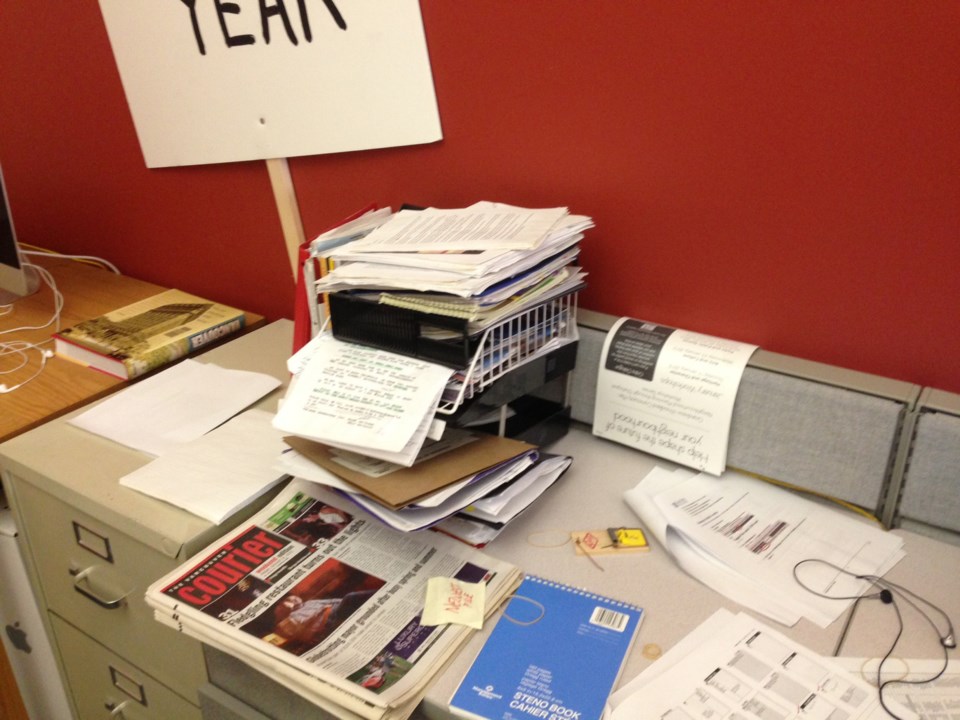A close and beloved relative of mine is a collector. He has difficulty throwing things away and to a lesser extent makes it difficult for others to throw their own things away. Family members have considered an intervention — perhaps having a big commercial garbage container delivered to his home.
I opposed this; he would welcome it as a present but be disappointed to find it empty. What constitutes junk — like the definition of beauty — is subject to our values and preferences. Within my first few years of marriage, I learned that one man’s treasure... is junk to his wife. I don’t like to keep secrets from my wife but I’ve learned to hide my treasures.
Every one of us has clutter in our lives. To paraphrase Jesus, let he who is free of clutter throw the first scrap of paper.
The Buddha taught us that the source of our suffering is our attachments. This applies to our craving for material things, our appetites, our obsessions, our addictions, our egos and of course our email.
In everyday life, clutter can get in the way. Literally, it can block a straight path across your living room. With eyes wide open, take a walk through the rooms of your home... with the lights on (I don’t want anyone to trip and fall). You don’t have to channel Jesus or the Buddha. Ask, “What would a firefighter say?”
We don’t have to have OCD to be affected by a messy room. Clutter can increase our anxiety. If bills, personal letters, flyers and papers are scattered or piled haphazardly in the kitchen, how can we maintain some order and peace in our lives? There may always be a feeling that something was missed like a bill unpaid, and it often is.
Taking the time to sort through the mail, find a proper place for everything and keep a clear desktop can induce a calming effect. In cleaning a den, office or kitchen counter, we will inevitably find many things to recycle or throw out. In our run through daily life, we often throw things aside for later use, but ultimately discover we can’t find them or never needed them.
The clutter can be in our heads. If we keep in the back of our minds a long list of things to do, we may feel stressed and disorganized. When we write down our tasks, we can prioritize, schedule and delete many of them. Putting things down on paper can make them more manageable.
This strategy is far less stressful than leaving things undone beyond their expiry date. Though someone else might do the things we’ve procrastinated (my kids use this approach with the dishes), it is more likely we will have to pay late fees, interest or other penalties. It may be even worse if we’re procrastinating crucial conversations such as the birds and the bees talk with our children.
Clutter can be the noise that prevents you from hearing your calling — distractions that steer you away from your most important goals. Those distractions include channel and websurfing, mindless conversation and gossip, Facebook updates and text messages, and other activities that consume your time, attention and energy without adding value to your life.
You can’t keep everything or take it all with you, and you don’t want to save all your newspaper, but you could save this article or send it to a needy family member or friend.
Dr. Davidicus Wong is a family physician at PrimeCare Medical. His Healthwise column appears regularly in this paper. You can read more about achieving your positive potential for health at davidicuswong.wordpress.com.



